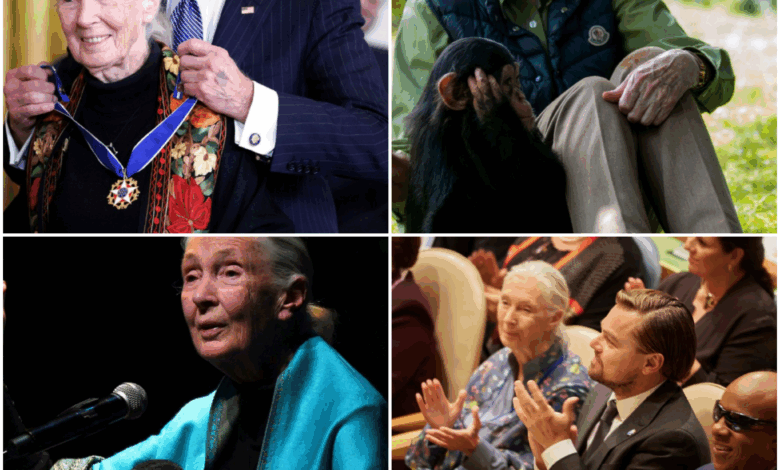QL.JUST IN: Jane Goodall, the trailblazing primatologist who taught the world about chimpanzees and their striking similarities to humans, has died at the age of 91.

JUST IN: Chimpanzee pioneer Jane Goodall dies at 91
Los Angeles, 1/10/2025 — The world of science and conservation was shocked today by the news that Dame Jane Goodall, the eminent British primatologist, had died of “natural causes” in Los Angeles while on a speaking tour in the United States.

She was known not only as a great chimpanzee researcher, but also as a global icon of compassion, environmental responsibility, and the connection between humans and the natural world.
A journey that changed the way we view humans and chimpanzees
Determined first steps
Born in 1934 in London with the birth name Valerie Jane Morris-Goodall, Jane grew up with a passion for nature and animals. Without a university degree, she still persistently pursued her dream of going to Africa. In 1957, she moved to Kenya and worked for the Natural History Museum before accepting an invitation from anthropologist Louis Leakey to begin research in Gombe, Tanzania.

Gombe – the breakthrough that shaped her career
From 1960, Jane began surveying wild chimpanzees in Gombe Stream National Park. She noted that chimpanzees had distinct personalities, tool use, emotions, and complex social structures – things previously thought to be the preserve of humans. These discoveries closed the imagined gap between humans and other primates.

Initially, she was met with skepticism because her “intimacy” approach – naming chimpanzees rather than assigning numbers – was seen as lacking in objectivity. But over time, her approach proved valuable in gaining a deeper understanding of animal behavior.

From scientist to voice for the planet
In 1977, Jane founded the Jane Goodall Institute to continue her research and expand her conservation work. She also founded the Roots & Shoots program, which encourages young people to take action for the environment and their communities.




